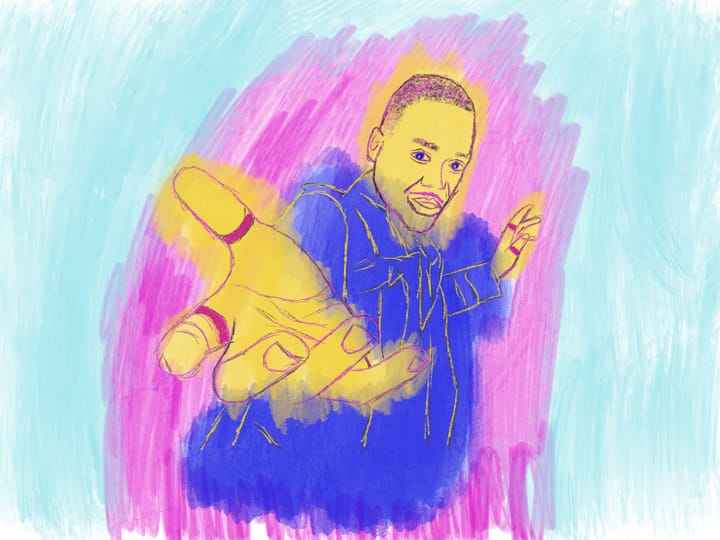An autistic person travels to Europe – Part 1

Recently, my wife and I took a trip to Europe. It was our first big trip in years, and I decided to note down some thoughts along the way. I’ve learnt a lot during the pandemic about disability and how to be in the world as an autistic person. The pandemic allowed me plenty of time to assess my needs and what I needed to do when I got back into the world, in the UK at least. I had no idea how autism was perceived or how hidden disabilities would be received in Europe. Was there a hidden lanyard scheme? Did I need to tell anyone anything? Questions I pondered about 2 weeks into the trip rather than before. I had been so concerned about my gender identity issues that I forgot to research my disability requirements. I’m 4 years into my ASD (Autism Spectrum Disorder). It feels like I’ve barely begun trying to untangle my internalised ableism, my ways of trying to fit in and being OK with my needs enough to remember that I have them.
Train travel
Our first port of call was not what I’d call a port. It was a train station. London St Pancras, where we waited for the Eurostar train to Paris for proper éclairs. Standing there in one of my skirts and I hear an announcement I haven’t heard for many a year. “If you see something not right, tell the police. See it. Say it. Sort it.” I forgot how every day dystopian this country can be at times. What exactly counts as “not right”? Is a “man” in a skirt with a camera someone’s definition of “not right”? Feeling very anxious waiting for my train.
Maybe if I was wearing my hidden disabilities lanyard I would feel a bit better, not that I bought it with me. It’s useless outside the UK. People might think I’m some autistic “man” playing with a camera. “Bless. Look at him try to be human.” Is that better than people seeing “it”, saying “it” and sorting “it”?
This is, of course, all in my head and I have no evidence to believe that I’m going to be whisked away at any moment for taking photos while looking non-binary. But hey, modern Britain. Who knows!
Declaring autism?
I left my Hidden Disabilities lanyard at home on this trip. Other than getting on and off the Eurostar in St Pancras, we wouldn’t be spending any time in the UK. The Hidden Disabilities symbol, a sunflower, doesn’t seem globally recognised. Maybe in a few decades it will be common place, but right now, it is mainly of benefit to those in the UK. Given that our trip was all under our control, that everything was in our travel app, and we were going to places I knew I felt like I would be OK without the lanyard.
Going through passport control, while smooth and efficient even in post Brexit days, I was still very stressed. Those passport machines with the camera that scan you are strangely terrifying. I’m trying to prove my identity while decoding the instructions while my senses are overloaded by lights and sound, while the machine scans me and my passport for it all to fail, resulting in me being even more stressed. At any second guns would come down and tell me I have 10 seconds to comply.
Would having a lanyard calm me down? Probably not. Would it have given me breathing room? I don’t know, as I’ve never tried wearing one when going through passport control. I have made a note to take it next time. Not only that, but I should wear it more often so I can feel like I’ve pre-empted a complex situation with my “I’m autistic” sign.
Accessibility options
One thing I did before leaving was to look for the accessibility options when travelling. Specific access options, toilets, etc. When booking a hotel room I saw the reviews say to try to avoid a room near the lift as it was noisy. So, I asked our hotel to place us away from it because of my sensory issues. I actually forgot about it and couldn’t tell you which hotel it was as we were away from the lift and I slept soundly with my ear plugs in. Either our request was granted or my ear plugs blocked it. It would be nice to think that they honoured my request.
While waiting in line for the Eurostar, I saw a disabled assistance section and thought, “Do I qualify?” I figured that even if I did and as complex and stressful as I find going through customs I should leave it for those who need real support. Internalised ableism perhaps? Honestly, I don’t know. The experience is stressful, but stressful enough that I need to bother the staff and take time away from someone who really requires support?
Credit to Eurostar, who have information for autistic customers on their site. Unfortunately, it’s for “travellers with autism” not “autistic travellers”, but at least it’s a step. They also have a general special assistance page with lots of information for disabled travellers.
- Airbnb Tailoring Experiences To Neurodiverse Guests
- Airbnb Rolls Out New Features For Those With Disabilities
- Autism | easyJet
That’s the end of part 1 and a brief look at what I was thinking about before heading out into Europe. The next few parts will cover the experience of being out in Europe as an autistic person with sensory issues and language barriers. Stay tuned.



Comments ()